Your home may provide comfort and security for you and your family, including your furry family members. However, many seemingly innocent items, such as cleaners, food, and small objects, can be dangerous for your pet—some of which may surprise you. Our Greenfield Veterinary Clinic team covers common household pet dangers to help you keep your pet safe and healthy.
Tasty but toxic: Foods that can hurt your pet
Most of us like to give our pets a little snack from the kitchen, but some foods that are safe for us may be toxic to cats and dogs. Before you sneak them a treat, be warned that the following food items are poisonous to pets:
- Alcohol
- Grapes and raisins
- Onions and garlic
- Caffeine
- Fruit pits (e.g., cherry and peach seeds)
- Chocolate
- Bread dough
- Avocados
- Macadamia nuts
- Xylitol
Pretty but poisonous: Toxic household plants
While plants can brighten a home, some common household plants are toxic to a pet who ingests them. Before you shop, know how each specific plant could affect your pet’s health and safety. Some examples of pet-toxic plants include:
- Lilies—especially to cats
- Philodendron
- Aloe vera
- Poinsettia
- Azalea
- Rhododendrons
- Tulip and narcissus bulbs
- Yew
- Sago palm
- Oleander
Toxic tidying: Cleaning products unsafe for pets
Most pet owners know that outdoor chemicals such as antifreeze are hazardous to pets, but overlook household cleaning products, many of which contain chemicals that can harm pets if ingested or inhaled. Bleach, ammonia, and certain disinfectants can cause irritation, respiratory issues, or poisoning. Use pet-friendly or natural cleaners, such as baking soda, vinegar, and lemon instead. When you do clean, always keep your pet in a different room until the cleaned area is fully dry or the vapor has dissipated.
Pill perils: Medications and pet safety
Human medications, such as pain relievers, antidepressants, and vitamins, can be life-changing for people with physical or psychological conditions. However, the same pills, capsules, topicals, and liquid forms of medication are dangerous for your pet. Always store medications in a secure location out of your pet’s reach, and never administer any medication—human or pet—to them without first consulting your veterinarian at Greenfield Veterinary Clinic.
Not-so-fun foreign objects: Small items unsafe for pets
Your inquisitive pet probably loves to investigate everything they encounter. Small objects or toys can be choking or internal obstruction hazards and must be kept out of reach. Dangerous items include:
- Hair ties
- Buttons
- Batteries
- Coins
- Keys
- Small children’s toys
- Rubber bands
- Deflated balloons
- Jewelry
- Yarn
- Thread
- Dental floss
Avoid the zap: Electric cords can shock pets
Curious pets, especially puppies, kittens, and small mammals, often like to chew on electrical cords, leading to electric shocks or burns. If your pet is a known chewer, be especially vigilant. Use cord protectors, or keep cords out of reach, and store cords that are not in use to avoid clutter and the potential for a pet emergency.
Plastic problems: Plastic bag pet dangers
Cats, in particular, are drawn to the crinkly sound of plastic bags, but ingesting or becoming entangled in them can be dangerous. Some pets may get inside plastic bags or other plastic-based items and suffocate. Always dispose of plastic bags properly and store them securely to prevent access by curious pets.
Steps to keep your pet safe
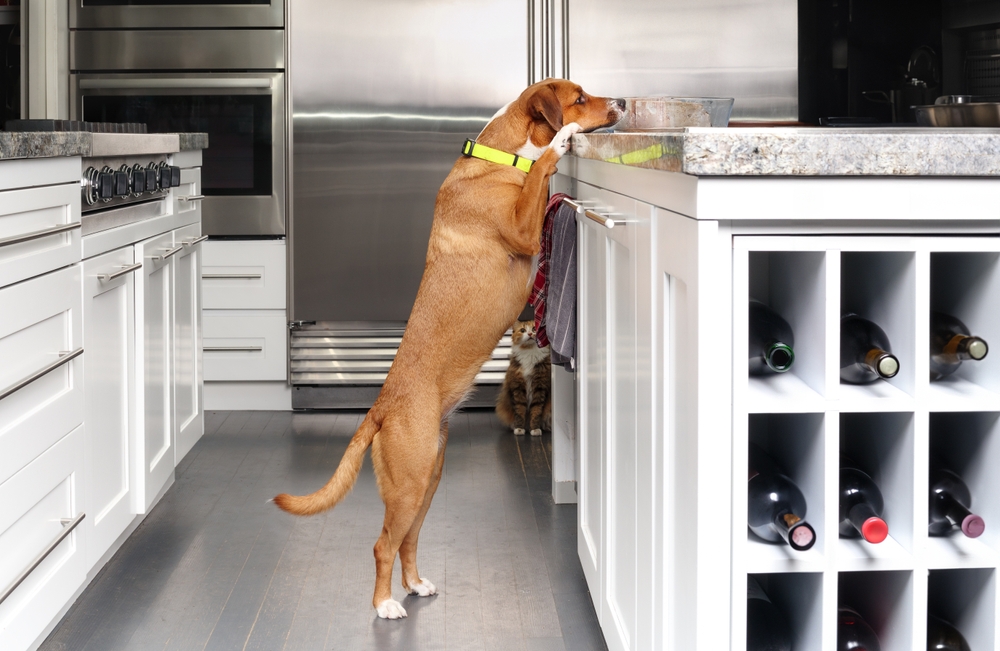
Many standard household items pose a risk to your pet, but you can protect your pet through proactive awareness and prevention. Knowing the items that put your pet at the most serious risk and ensuring they are inaccessible to your pet are simple steps. Other steps you can take to mitigate household pet hazards include:
- Storing all chemicals and medications in pet-proof containers inside a cabinet.
- Doing a thorough sweep of your home periodically, picking up any small objects from the floor and other low-lying areas, such as coffee tables.
- Opting for pet-safe plants to beautify your home—you can find a list of non-toxic plants through the ASPCA website.
- Securing your pet in another area when you are using cleaning products and ensuring the floors are dry after mopping before letting your pet walk across them.
- Saving the Pet Poison Helpline information, so you can contact them quickly if necessary.
While you think of your home as your haven, be aware that everyday household items can be unsafe for your pet. Do not hesitate to contact our Greenfield Veterinary Clinic team if you have questions about possible toxins or you suspect your pet has put themselves in harm’s way. We always want to help ensure the health and safety of your furry friend—and give them something to wag about.


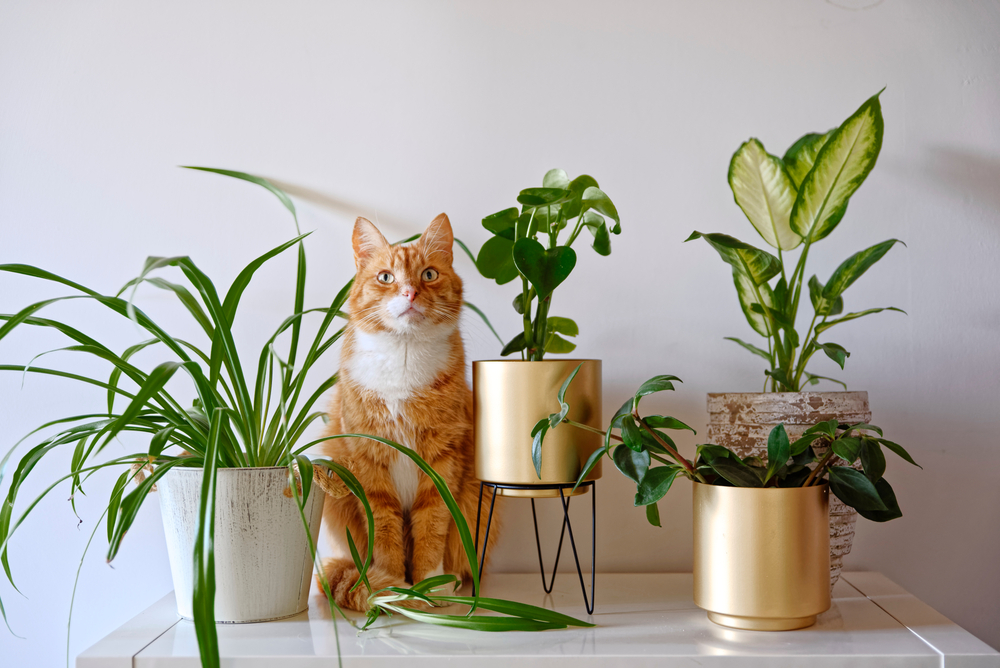
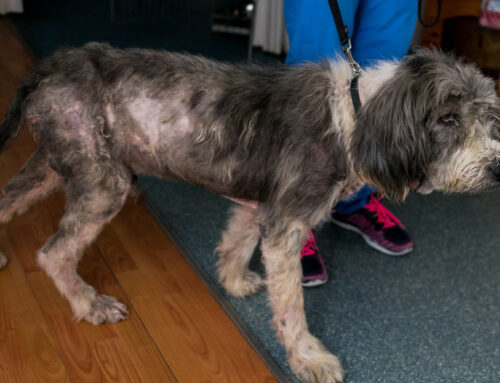
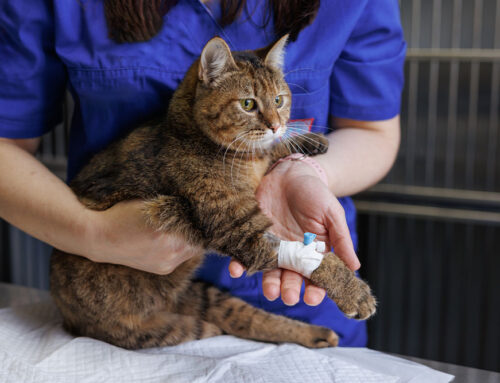
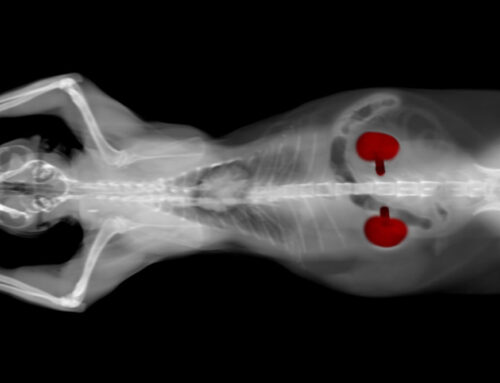
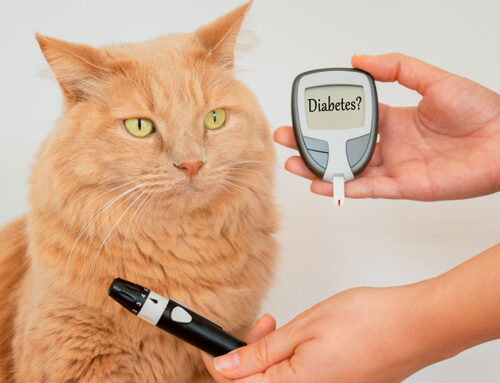
Leave A Comment